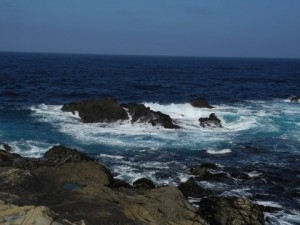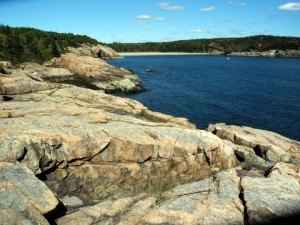If you’ve traveled overseas recently, you may have noticed a well-produced ad that promotes the United States as an alluring tourist destination: part of the first U.S. national advertising campaign designed to draw more international visitors to America.
The campaign is called “Discover America, Land of Dreams,” and the commercial now running in Germany and other countries features Rosanne Cash singing her song “Land of Dreams” while images of America — from Manhattan to California to Florida to New Orleans — flash across the screen. The Americans pictured reflect the country’s diversity: Muslim women in New York, an Asian-American man riding a motorcycle, a gay couple on a San Francisco cable car, a blonde woman in the Florida Everglades.
Spearheading the campaign is a public-private partnership called Brand USA, with the federal government and the U.S. tourism industry joining forces to promote the country as a welcoming place for international tourists. Private donations of money and services from tourism partners totaled $139 million, while the government threw in $100 million that was collected from none other than fees from foreign visitors traveling to the U.S. on a visa-free basis.
There are solid economic reasons for the campaign: the U.S. tourism industry accounts for a million jobs and three percent of the country’s GDP. Some 70 million international visitors spent an estimated $179 billion in the U.S. in 2013, while the Obama administration’s goal is to attract 100 million tourists spending $250 billion within the next seven years.
The campaign may be paying off. A record number of visitors toured the U.S. in 2013, but this came after a decade in which the country’s share of international tourists took a nose dive of nearly one-third following the attacks of September 11, 2001 — despite a sharp overall rise in tourism around the globe during that time.

To California’s Monterey Bay…the U.S. has remarkable beauty to offer international visitors. Photos by Clark Norton
Stringent new security regulations, tougher visa policies, and stricter border enforcement in general following 9/11 made the U.S. seem a more unwelcoming place in the eyes of many overseas. NSA spying revelations, which have reduced trust abroad in the U.S. government, and news reports of Americans’ intolerance for immigrants — especially those of Middle Eastern descent — haven’t helped. (The Middle East is a huge new source of affluent tourists worldwide, but they’re flocking mainly to Europe and east Asia.)
Hence the rebranding effort, which — combined with plans to ease some visa restrictions and train border agents and TSA workers to put on more friendly faces — are working to convince other nationalities to give the U.S. a second look. Surveys already show more willingness among Canadians, Japanese and British to visit the U.S. in 2014.
The fact that this is the first U.S. effort to form a national tourism campaign — standard in most other developed countries — reflects the unfortunately low priority that Washington has accorded the tourism industry in the past. While this new campaign seems like a good first step, it has to be accompanied by more welcoming attitudes once the new visitors reach the U.S. , as well as the easing of some unnecessary visa restrictions.
Tourism is the world’s number one industry, and the U.S. — with so much to offer in the way of natural wonders, cultural attractions, entertainment options, magnificent cities, and diverse, friendly people — needs to pay more attention to the benefits that international visitors offer, both economically and in rebuilding our image around the world.
What do you think, readers? I’d be interested in hearing from overseas readers, particularly, about their feelings toward visiting the U.S. and whether an ad campaign like this might affect attitudes abroad.
Be sure to download my free report, “How to Ride the Coming Wave of Boomers,” available here. It’s all about the best ways to market travel to baby boomers — the biggest-spending group of travelers the world has ever seen. It’s also the easiest way to subscribe to my blog, so you won’t miss a posting. Thanks!













4 Responses to Can a Rebranding Campaign Boost Tourism to U.S.?